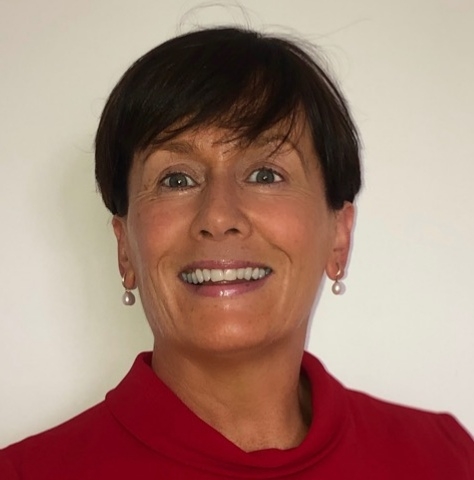
What made you study at UL?
I had completed my business degree in Galway back in 1996. Throughout my work, I had pursued continuous professional development and different courses. Throughout the years, I have been an accounts manager, self-employed and more recently I started doing community work in Saint Mary's Cathedral. I always felt that somewhere down the line I would return to education. The Faculty of Arts, Humanities, Social Sciences felt like a good match for me because in the work that I was doing, I would have been familiar with names like Prof. Devereux, Dr Martin Power and Dr. Eileen Humphries and of course Dr. Amanda Haynes. I felt if there was a chance to study and to learn from these people that would be a real privilege. Prior to taking any step towards the college, I made contact with Prof. Devereux who assisted me greatly in deciding to make a return to education.
What did you learn on the course?
When I started in the course, I felt it initially gave me was an understanding of all the leading sociological writers and theorists, I would never have had the opportunity in the workplace to explore this. The theory we explored in class was used as a basis to critically question and debate the arguments of today concerning youth, community, and regeneration activity.
Another thing I learned was how to structure an argument and present an opinion in a meaningful way. When you are out in the industry, you tend to focus on the present, on the now, on today; you are living in the moment, so this course allowed me to reassess my opinions and my approach. It is critical in a changing world that we are forced to constantly re-evaluate our thinking. It gave me the confidence to present my opinion, to support it with evidence, and to communicate it well.
What is unique about the programme?
What I felt was unique to this program was that the college was geographically situated in an area that had been subject to, at the time, the biggest regeneration project in Europe which gives the faculty and indeed the area a unique perspective in this regard. I also feel that academic staff at UL have great connections to the community sector, both in Ireland and abroad and they are very generous in sharing their connections. Using their connections, they introduced us to leaders in NGO's, industry, academia, government bodies, local councils and social researchers, people that we would never have had the opportunity to meet in everyday life.
Prof. Devereux organised a field trip to County Clare where we met community leaders there that I would never have met otherwise which was interesting and really put the theory we were learning into practice.
Can you take us through a typical week on the MA programme?
I did the part time programme, so I had class two days a week where I have a mix of tutorials and lectures, research and writing. I spent a lot of time in the library, and in the University restaurants and cafés with my classmates, I loved listening to them and their experiences and what they want to do in the future.
I worked three days a week then outside of college. That was an advantage to me because I have two third level students who need to be funded through college so I had to work. The course was good for me in that I could do it part time and I was happy to continue working.
Can you tell us about your own personal experience of the course, the benefits/challenges etc?
As a mature student, initially it was very daunting. I was very overwhelmed and I felt that I would lack the IT skills and that I would have very little to bring to the table. A few factors helped me get over those initial feelings including engaging with the supports offered by the University.
I found the regional writing centre very good. I had engaged in their tutorials initially and their videos and peer tutors. I felt the library was fantastic and the library staff were excellent, there was no stupid question that they would not answer and I always felt that they were eager and proud to show off the college and what the library could do. I found the ladies in the canteen really helpful. They would always remember you and ask you how you are. The lecturers themselves always answered any questions I had. I found UL student Life very good for information and support. I found my classmates really helpful and supportive also. It is a time in my life that I will look back at with great pride and fondness.
Would you recommend the MA to others?
I definitely would recommend the MA to others. As a part time course, I would recommend it. It was perfectly suited. I think it is definitely suitable for mature students who have been out of academia for some time. I would advise anyone like that to return to education and to park their apprehensions and to just go for it.
What do you plan to do/have done post-graduation?
The unique thing about the course leader and the lecturers on the programme is that they have great connections in the community, where as part of the programme, I got to complete an internship in PAUL Partnership. I would not have had the opportunity to do this if I had not decided to do this programme.
The course seems to prepare graduates for a very wide variety of roles including community work, academia and the public sector. I think for me that it has increased my value and career opportunities in the workplace.
